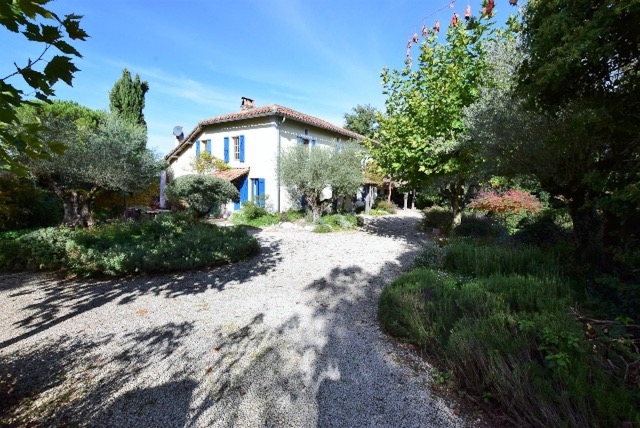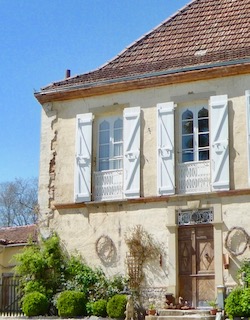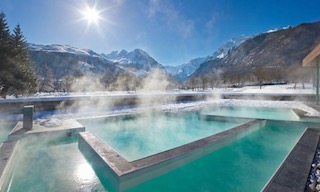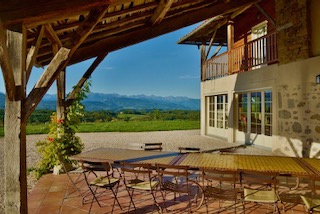View from the Foothills of France Some personal views on living, working,
bringing up family and making the dream happen in the most beautiful region of France. View from the Foothills of France also includes some personal and professional thoughts and tips on finding and buying the perfect property in the Ariège and Haute Garonne regions.
|
By nadia, on 10th May 2022 
Last month, the highest number of searches in internet history were made in Britain for the term “move abroad” on Google. Searches rose by 1000% in April, according to data from emigration specialist Reiss Edwards.
More than 400,000 British residents emigrate each year and it looks like this number is only going to increase thanks to inflation and rising costs driving down standards of living in the UK, pushing some Brits to look for an alternative way of life and a more affordable country in which to settle for a better lifestyle.
Britain has been faced with a gradual rise in the cost of living that began with Brexit followed by the pandemic, and which has been amplified enormously in the last couple of months with inflation, supply problems and mortgage interest rate rises. This means that many people who thought they had a decent job and income are suddenly finding themselves struggling to cope with the rising costs and the fast-paced, consumer pressures that come with living in the UK. Combine this with a seemingly endless cycle of bad news and a change of priorities thanks to living through the uncertainties of Covid and and it is not surprising that so many people are starting to think that there must be a better way to live and that it is perhaps time for a new start.
Of course, there are also inflationary pressures in France and prices here are also rising, albeit at a slower rate from a lower baseline but it is not having the same impact on people’s quality of life. The property market in France is more stable and not so affected by the vagaries of the wider economy thanks to less pressure on housing and the fact that most people take out a 15- or 20-year fixed rate mortgage. This means that property is still affordable, mortgage rates low as are property taxes and energy prices are also capped plus things like childcare are much cheaper in France, as is university and schooling. On a day-to-day basis, local produce is good value, home cooking still the norm and the pace of life slower whilst quality of life remains a priority. And of course, in this part of France, the better climate means that it is more practical to walk and cycle rather than drive and to use the countryside as a free leisure park which also makes for a lower cost of living.
Ultimately moving somewhere with lower house prices, lower mortgage rates and a lower cost of living can mean a better quality of life. Equally this comes with a sense of uplift in difficult times and a feeling of opportunity and freedom; that of choosing how we want to live our lives rather than feeling we can never get off the hamster wheel of working simply to pay our ever increasing costs.
If you would like information or advice about moving to France and finding the right property for you, please get in touch: nadia@foothillsoffrance.com
Like this:Like Loading...
By nadia, on 6th April 2022 
The last five years have seen a gradual upward trend in the French property market following a very flat period for prices from 2012-2015. As usual, the market seems to track the economic and political situation in France, and both seem to approve of President Macron. Since he has been in power (he was elected in May 2017), the French economy has seen the fastest expansion for 52 years (according to the FT) and the property market has mirrored this with both sales and prices increasing.
The French economy was badly hit by Covid 19 like the rest of the world, but it also seems to have bounced back more quickly than most countries to the surprise even of the French finance minister, Bruno Le Maire, who is quoted as saying: “L’économie redémarre plus vite que prévu” (the economy has rebounded more quickly than predicted). France has among the best economic growth figures in the Eurozone with French economy growing by 6.8% in 2021 and it is forecast to continue grow by 4.2% in 2022.
This fast rebound might be because France was one of the first and most efficient countries to roll out massive financial support for families and businesses at the start of the Covid pandemic and this has continued right up to the beginning of this year. The result has been that economic output has been maintained throughout the pandemic and consumer spending also continued, hence France is seeing a much quicker recovery than most other countries.
France is also less affected by the economic global slow down because France exports less than other European countries (French exports contribute only 31% of French GDP while that figure is 48% for the rest of Europe) and inflation is rising more slowly than, for example, in the UK (although it is still rising; confirmed at 3.6% in February). In addition, France is less affected by the energy crisis because it generates a high percentage of its own electricity. In 2020, nuclear power made up the largest portion of electricity generation, at around 78% of France’s electricity while renewable sources (wind, solar and hydro-electric) accounted for 19.1% of energy consumption. France has the largest share of nuclear electricity in the world and is also among the world’s biggest net exporters of electricity. The country is increasingly investing in renewable energy and has set a target of 32% by 2030
How does all this impact on property prices?
According to the Notaires de France (Notaires.fr) the price of older houses in France continued an upward trajectory and rose by 9% in the third quarter of 2021. The average rise in prices for mainland France during 2021 was 6.8% for houses and in the 12 months to May 2021, there were 1,130,000 house sale transactions, the highest level since 2000. Which means that the French property market has experienced over 6 years of solid growth since early 2016.
This has been helped by the historically low interest rates on mortgages in France which has seen the number of mortgages approved increase by 5.3% in the year to August 2021. The forecast for French mortgage rates for 2022, shows that the underlying low interest rates will continue for the foreseeable future.
The property market in France tends to be more stable and consistent than in many other countries. However, a combination of factors over the last two years seems to have fundamentally shifted the normal patterns producing an increasing demand for older houses and a trend for rural properties. This has created a significant lack of supply in certain rural areas (those within an hour of a major urban centre). This combined with the fact that fewer new houses are being built, thanks to stricter planning and energy regulations, means that there is a dwindling supply of older properties. Agents are complaining that they have plenty of buyers but nothing to sell them which is creating a seller’s market. This in turn means that houses are still selling very quickly in 2022 just as they did in 2021 (a novelty for the French property market) and buyers are having to act quickly and pay the asking price to secure their preferred home, or they risk losing out. This in turn, is driving prices upwards.
I am seeing a continuing demand for more space and flexible, inter-generational living as well as for income generating properties. Remote working seems to have had a significant impact on the type of property most in demand, shifting from smaller, urban properties to larger and more rural houses, particularly if they offer flexible living accommodation, large gardens, pools, and office space. There is also more demand for properties with easy access to everyday services such as schools, local shops, and communities rather than properties that are very isolated.
There is no question that the French property market is having a moment, but it is a seller’s market which can mean plenty of frustration for buyers. There is not much out there and anything good is getting snapped up almost as soon as it is advertised. So be prepared to act quickly, have your finances in place and maybe think of employing an expert on the ground who has the local contacts and the ears of the agents to ensure you don’t miss out on your dream property when it does come onto the market.
If you would like some help or advice to find the perfect French property, please get in touch: nadia@foothillsoffrance.com
Like this:Like Loading...
By nadia, on 23rd March 2022  Balnea in the Pyrenees It’s no wonder that the French love visiting the doctor here in France; French Doctors have at their fingertips the ability to prescribe you ‘the cure’. Now that is what you want from a doctor. Apparently ‘the cure’ can be prescribed for all sorts of illnesses and ailments ranging from arthritis to asthma to diabetes and poor circulation to name just a few.
And it turns out that the cure is just as appealing as it sounds because it predominantly involves a trip to a thermal baths/spa to soak in the water and be given various treatments involving minerals, massages, and thermal mud. These treatments can take anything from a few days to three weeks and, in addition, France having some of the best health care in the world, the majority of the cost of these treatments is covered by the French state with the rest usually being paid for by the patient’s top up health insurance known as a mutuelle.
So, I guess it is not surprising that the market in France for thermal treatments is a large one. In 2021, 326,000 people visited thermal spas for ‘the cure’ and France has more than 770 thermal springs with over 100 stations thermales.
The beneficial effects of thermal cures are well-known since ancient times; the Egyptians, Phoenicians, Hebrews, and Israelites all practiced immersing themselves in cold and hot water and, in Oriental cultures, water therapies were prescribed by religious laws. In Italy, the Etruscans, living in a country rich in natural springs, were one of the first to use water for healing purposes. The ancient Greeks believed in the therapeutic benefits of hot baths and mineral waters and studied their properties and effects on health.
The Romans expanded on the use of mineral and thermal baths as social experiences. They constructed the first large-scale spas with elaborate aqueduct systems carrying mineral waters to private stone tubs, steam rooms and public bathing areas and magnificent edifices (thermae) with a capacity for hundreds or thousands of people.
During the 1800s, bathing became very fashionable and the interest in the health benefits grew; doctors were convinced that for each disease there was an appropriate medicinal spring, which could be discovered through chemical analysis of the waters. Throughout Europe during the Belle Epoch, spas became an integral part of life for the elite. Every spa resort had its own theatre, casino, and promenades besides the bathing buildings. Grand hotels arose with casinos and dancing establishments surrounding the spa resorts.
More recently, health, wellness and spa tourism has become a rapidly growing sector of the tourism industry worldwide.
And it turns out that the Pyrenees is the place to come for the most healing and beneficial thermal baths, treatments, and spas. The three regions of the Pyrenees represent 48.6% of the French thermal spa activity and, in terms of the number of springs and the water quality, the hydrothermal richness of the Pyrenees is unrivalled. For example, the waters in our local spa town of Bagnères de Luchon have the highest sulphur content in the Pyrenees. With 118 natural springs, Luchon is one of the oldest and best-known thermal spa towns in France. Plus, in the next valley, there is the much newer Balnéa leisure spa on the banks of Génos-Loudenvielle lake. Here you can bathe in numerous themed, outdoor hot baths while enjoying views of snow-capped mountains and the health benefits of the hot springs which is an incredible experience even when one doesn’t need ‘the cure’.
What does this all have to do with the property market? Well quite a lot in fact, because it explains the year-round popularity of thermal towns in France and hence the high demand for rental properties throughout the year. So, for example, in Bagnères de Luchon, people visiting for ‘the cure’ tend to come in low season which is spring and autumn while the winter season is booked out by skiers and the summer by walkers, cyclists and summer holidaymakers. So, although ‘the cure’ might seem like another generous hand out by the French state, it also has a huge number of knock-on benefits in numerous towns around the country and ultimately ensures both a thriving year-round holiday market and a thriving property and rentals market as well as year-round business for the shops and restaurants.
If you would like help with your French property search or more information, please get in touch: nadia@foothillsoffrance.com
Like this:Like Loading...
By nadia, on 3rd March 2022 
Many of my clients (and many sellers I meet) want to know how the value of French property is calculated. This is not, however, an easy question to answer because there is no one agreed method or set criteria for valuing property here and there are also different criteria used in different regions. The old-fashioned method, still used by far too many agents, is to use the price per square metre calculation but while this may work relatively well in cities, it means nothing here in the countryside where properties are so varied and hence each region and each agent tends to use a mixture of calculations, comparisons and professional or local knowledge to come up with the figure of an asking price.
Some of the most important criteria used here in the foothills region are:
Location – is it a popular or thriving area or an area that is in demand?
Situation – quiet or on a road? Private or overlooked?
View – a property with a mountain view is worth more than one without
Access – to the motorway, to the airport and to the ski resorts
Proximity – to amenities such as shops, cafés/restaurants and schools
Orientation – south or north facing? Sitting in middle or on edge of land?
Number of rooms – particularly bedrooms and bathrooms
Quality of construction – is it a well-built, solid, stone house?
Quality of renovation – has it been renovated professionally or had the dodgy DIY treatment?
Condition – of the roof, woodwork, floors, kitchen, bathrooms etc. Outbuildings – add value if there is possibility of converting them to accommodation but reduce value if they need lots of work and money spending on them
Quantity and quality of land – there is a set price per metre for agricultural land (around 4000 Euros per hectare) which will be added to the property. However, there is then a premium for certain criteria pertaining to the land, for example, if it is flat, if there is woodland, if it is fenced, if there is water and if the land is attached to the property (here land is not necessarily right next to the house)
Demand – if it is the type of property in demand, the price will be more. For example, in this region, a Maison de Maître is generally worth more than a farmhouse of a similar size and condition but an isolated mountain barn in its own land is worth more than a small village house even if the barn needs renovation. And a house in a village that has a bakery or shop, or school will be worth more than a very similar house in a village with no facilities.
In addition, a well presented, maintained and clean house will generally be given a higher valuation than an almost identical house that is dirty and unloved because the agent knows that buyers often cannot see through the mess and so will need to price it lower in order to attract interest.
Hence, there are many criteria that an agent will take into account when assessing and valuing a property but often it will simply come down to experience and knowledge of the market and gut feeling which means that two agents might come up with very different estimations. However, in the current, very dynamic market, agents are pricing to sell, and it is rare to see a house that is wildly over or under priced – unless it is being sold privately which is a whole other matter. Luckily, I see many hundreds of houses each year so I can generally tell as soon as I walk into a house if the price is right.
If you have questions or need help with your French property search, please get in touch: nadia@foothillsoffrance.com
Like this:Like Loading...
|
For further information please contact us:
|









You must be logged in to post a comment.